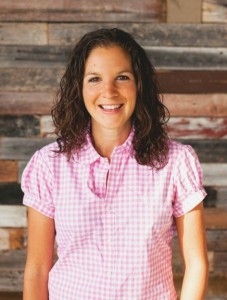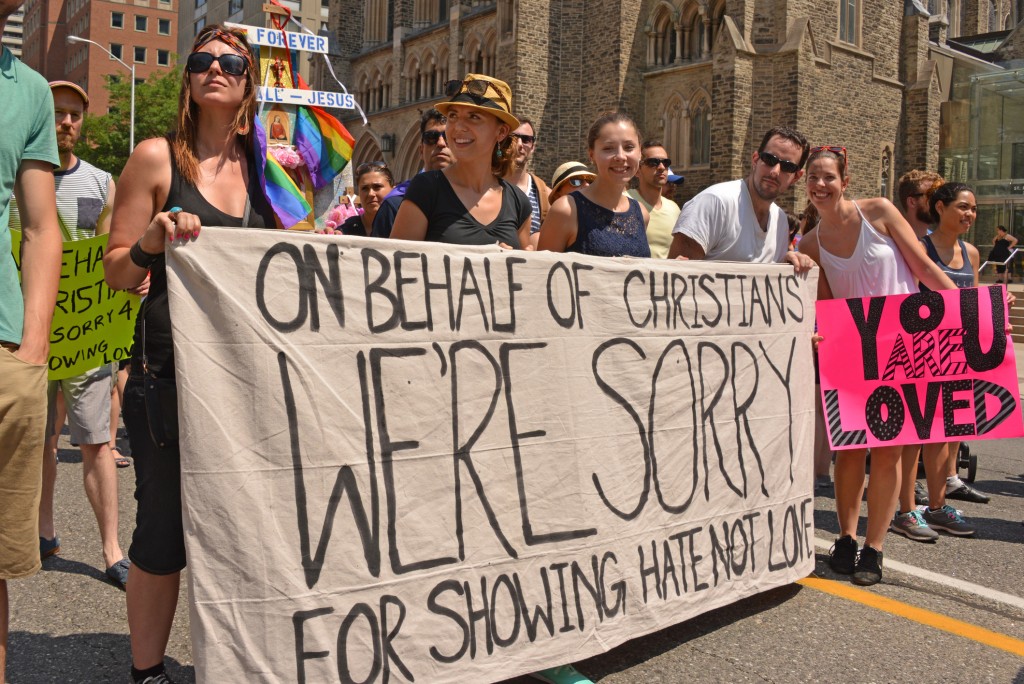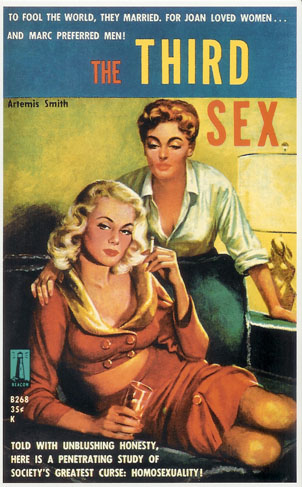Over the last year or two, LGBTQ issues have erupted with increasing frequency at evangelical colleges and universities, including George Fox University where professor Michael Bevis recently was more-or-less forced to resign earlier this month after he refused to stay in his heterosexual marriage and “get therapy” after coming out as a gay man.
A February incident at Wheaton College in Illinois where someone threw an apple at a student who dared to question publicly fellow Christians’ discriminatory treatment of LGBTQ people during a chapel service, inflaming anti-gay rhetoric on the campus in various student forums, even garnered coverage in TIME Magazine. Meanwhile Wheaton’s appointment of lesbian-but-celibate chaplain Julie Rodgers also has been controversial, eliciting strong reactions both from critics who believe homosexuality is “sinful” and “unnatural” and needs divine healing, as well as from critics who believe it’s wrong to ask or expect LGBTQ Christians to be celibate.
And then there is Biola University, which last week hosted a sneak preview screening of the new pro-“ex-gay movement” documentary Sing Over Me, despite having welcomed Gay Christian Network founder Justin Lee to campus eight months earlier to affirm the importance of treating everyone with equal dignity regardless of sexual orientation or identity.
Lee’s visit came not long after the university granted official recognition to an LGBT student group comprised of same-sex attracted students committed to lifelong celibacy and “spiritual friendship.” (A pre-existing LGBT student group, which affirms marriage equality, is still not acknowledged officially by Biola.)
Clearly, attitudes around LGBTQ inclusion are changing rapidly in the evangelical Christian community but they’re not following a linear path toward progress. Rather the change has been in a dynamic and almost chaotic way—two steps forward, three steps back, and one to the side— seemingly driven more by passionate emotions (especially fear) than reason, grace, and the serenity of spiritually-centered love.

Julie Rodgers, 28, is a chaplain at evangelical Wheaton College who identifies herself as a celibate lesbian. Photo via Rodgers blog.
People involved in each of the incidents at Christians schools I mention above have been in dialogue with Safety Net, a national non-profit advocacy resource to support lesbian, gay, bisexual, trans*, queer, and allied (LGBTQ&A) students, alumni, faculty, and staff at Christian colleges, before, during and after the events unfolded in social media. As co-chair of the Board of Directors, I work with other board members advising administrators, faculty, and students at Christian universities when requested to do so, often in confidence with potential or closeted allies of the LGBT students there.
In our public work, we advocated with and for LGBT students at the Gay Christian Network annual conference in January and presented a workshop on these students’ needs and activism at Creating Change, the National LGBTQ Task Force annual conference in February.
Professor Bevins’ experience at George Fox is similar to my own very public departure in 2013 from Azusa Pacific University, where I was at one time its chair of theology and philosophy, and taught ministry and theology for 15 years while complying with, then recovering from the near-fatal effects of various forms of reparative therapy.
In the last year or so, we have observed increasing pushback against LGBTQ students (especially trans*), most publicly at George Fox, where last fall university officials refused to allow a trans* student to live in student housing appropriate to his gender, and at California Baptist University, which expelled a trans* student from its nursing program in 2013 for alleged fraud because she chose the “female” box for “gender” on her application for admission. Both trans* students sued their former schools, but courts largely sided with the universities in both cases.
With the urgency created by the most active forms of anti-LGBTQ discrimination—including immediate crises of employment, housing, education, and emotional and social support so important in light of our disproportionate rate of suicide in such contexts—we have discussed the theological and cultural ramification of these recent events widely and in depth. Legal experts and secular journalists in mainstream publications such as The Washington Post and USA Today also have examined the dynamics surrounding LGBTQ issues at Christian schools. The consensus seems to be that religious conservatives are pushing back harder due to recent legal and cultural advancement of marriage equality for same-sex couples and extension of legal gender equality protections to include people who are transgender.
Just as the movement for lesbian and gay rights has progressed markedly since the American Psychiatric Association (APA) removed “homosexuality” as a psychiatric disorder from its diagnostic manual (DSM) in 1973, so equality for people who are transgender has advanced since the APA’s removal of “gender identity disorder” (the idea that being trans* is inherently pathological) from its DSM in 2013.
Law professors Andrew Koppelman of Northwestern University and Ilya Somin of George Mason University, who co-authored an amicus brief urging the Supreme Court to invalidate laws banning same-sex marriage, argued earlier this week that gender discrimination is the missing link needed to protect marriage equality.
Long before I experienced evangelical Christian anti-LGBTQ discrimination, as a theologian I endured decades of unveiled gender discrimination as a “woman” in ministry teaching “over men” in evangelical settings. In that context I would extend Koppelman and Somin’s argument even further: anti-LGBT rhetoric among evangelical Christians is based on gender discrimination. Its aim is to uphold patriarchy by reinforcing a gender binary in which allegedly God-ordained differences between men and women privilege what is perceived to be hegemonically masculine, and discount that which is perceived to be feminine or ambiguous.
Transgender, feminist, and Christian philosophers have pointed out this connection before, from Autumn Sandeen’s work on scientific flaws in dichotomizing sex/gender and Sharon E. Preves’ work on sociocultural responses to intersex identities to Teri Merrick’s work on Augustine of Hippo’s early 5th-century affirmation of “hermaphrodite” identities as God-created in Chapter 8 of City of God Book XVI.
Drawing on the work of historian John Boswell in the 1980s, contemporary scholars of gender and sexuality seem to agree that homophobia coincides with Christianity’s shift from its countercultural and Jewish egalitarian origins to imperial approval and assimilation to the patriarchal norms of empire, including the misogynistic removal of women from the priesthood, well-documented by historian Karen Jo Torjesen.
By the late medieval era, the connection between misogyny and homophobia in an increasingly patriarchal western Christianity is explicit. While, like Augustine, acknowledging the existence of “hermaphrodites” (intersex people), 12th-century theologian Peter Cantor explained that “the church allows a hermaphrodite—that is, someone with the organs of both sexes, capable of either active or passive functions—to use the organ by which (s)he is most aroused or the one which (s)he is more susceptible” provided there is no same sex intercourse.
“If…(s)he should fail with one organ, the use of the other can never be permitted,” Cantor wrote, “but (s)he must be perpetually celibate to avoid any similarity to the role inversion of sodomy, which is detested by God.” He is merely articulating what had become Christian consensus at the time, as Boswell and many others have clearly demonstrated, i.e., what “God detests” is “role inversion”—the “passive” or receptive “female” role a man takes when loving another man, or the “active” or “masculine” role a woman takes when she loves another woman sexually.
The sex act itself between same-gender lovers is the very battleground for Christian conservatives because, in their view, it undermines patriarchy. When “Christian values” are founded upon male privilege and female submission in a strict gender binary, “sodomy” is a declaration of holy war. (Biblical scholarship correctly contextualizing the sin of Sodom as prideful wealth-hoarding, and scientific scholarship supporting far more complex understandings of sexuality and gender, also undermine a wartime rhetoric so tend to be dismissed as irrelevant in the heat of this battle.)
The cost of this polemic is too high. As universities such as Biola return to promoting reparative therapies, evidence of the ineffectiveness and harm these “therapies” cause mounts. According to the official position of The American Academy of Child and Adolescent Psychiatry,
In a Washington Post article this week, Columbia University socio-medical sciences professor Jennifer S. Hirsch said that youth “lacking parental support for their sexual orientation are at higher risk for mental health problems, drug use, and unprotected sex. And the risk isn’t minor—those who felt rejected by their families are eight times more likely to have attempted suicide.”
The scientific studies Hirsch cites demonstrate that the risks are highest for LGBT youth in Christian or other religious families. These are, of course, the same youths who are most likely to attend these Christian colleges.
Bevis ended his recent blog post about his termination from George Fox (an evangelical Quaker school) with this quote from Martin Luther King, Jr.:
In solidarity with LGBTQ students who are speaking out against reparative therapies on Christian campuses, may we join Bevin in challenging the discourse of hegemonic Christian patriarchy by telling our stories, too.







